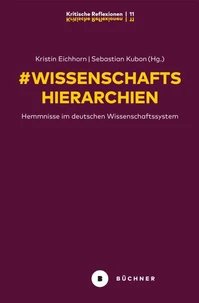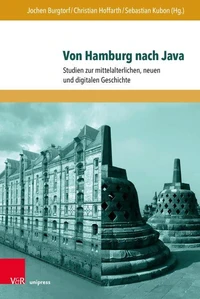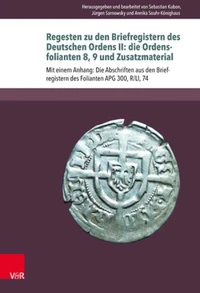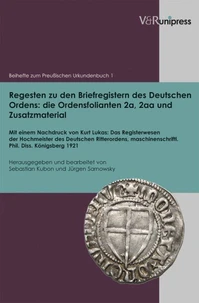Die Außenpolitik des Deutschen Ordens unter Hochmeister Konrad von Jungingen (1393–1407)
Par :Formats :
Disponible dans votre compte client Decitre ou Furet du Nord dès validation de votre commande. Le format PDF est :
- Compatible avec une lecture sur My Vivlio (smartphone, tablette, ordinateur)
- Compatible avec une lecture sur liseuses Vivlio
- Pour les liseuses autres que Vivlio, vous devez utiliser le logiciel Adobe Digital Edition. Non compatible avec la lecture sur les liseuses Kindle, Remarkable et Sony
 , qui est-ce ?
, qui est-ce ?Notre partenaire de plateforme de lecture numérique où vous retrouverez l'ensemble de vos ebooks gratuitement
Pour en savoir plus sur nos ebooks, consultez notre aide en ligne ici
- Nombre de pages367
- FormatPDF
- ISBN978-3-8470-0537-7
- EAN9783847005377
- Date de parution12/09/2016
- Protection num.pas de protection
- Taille6 Mo
- Infos supplémentairespdf
- ÉditeurV&R Unipress
Résumé
The time of the Grand Master Conrad von Jungingen (1393-1407) is often considered to be the heyday ("Blütezeit") of the Monastic State of the Teutonic Order in Prussia. Generally, this conclusion is not least drawn on the basis of the developments in foreign affairs during this period: Samogitia was ceded twice to the Order, and in 1402, Conrad took the Neumark as pawn. During these years an invading army of the Order also conquered Gotland.
Prussia thus achieved its largest territorial expansion in this period. Most scholars regard this as the climax of the Teutonic Order's power and rule in the Baltic area. The Grand Master is characterised as a decisive leader with far-reaching plans and sweeping visions. This is all but true. The present case study shows that Prussia under Conrad von Jungingen must be considered an adhocracy rather than a well-governed state of the Teutonic Order, and the territorial expansion attributed to chance rather than strategy, thus challenging the epithet "Blütezeit".
Prussia thus achieved its largest territorial expansion in this period. Most scholars regard this as the climax of the Teutonic Order's power and rule in the Baltic area. The Grand Master is characterised as a decisive leader with far-reaching plans and sweeping visions. This is all but true. The present case study shows that Prussia under Conrad von Jungingen must be considered an adhocracy rather than a well-governed state of the Teutonic Order, and the territorial expansion attributed to chance rather than strategy, thus challenging the epithet "Blütezeit".
The time of the Grand Master Conrad von Jungingen (1393-1407) is often considered to be the heyday ("Blütezeit") of the Monastic State of the Teutonic Order in Prussia. Generally, this conclusion is not least drawn on the basis of the developments in foreign affairs during this period: Samogitia was ceded twice to the Order, and in 1402, Conrad took the Neumark as pawn. During these years an invading army of the Order also conquered Gotland.
Prussia thus achieved its largest territorial expansion in this period. Most scholars regard this as the climax of the Teutonic Order's power and rule in the Baltic area. The Grand Master is characterised as a decisive leader with far-reaching plans and sweeping visions. This is all but true. The present case study shows that Prussia under Conrad von Jungingen must be considered an adhocracy rather than a well-governed state of the Teutonic Order, and the territorial expansion attributed to chance rather than strategy, thus challenging the epithet "Blütezeit".
Prussia thus achieved its largest territorial expansion in this period. Most scholars regard this as the climax of the Teutonic Order's power and rule in the Baltic area. The Grand Master is characterised as a decisive leader with far-reaching plans and sweeping visions. This is all but true. The present case study shows that Prussia under Conrad von Jungingen must be considered an adhocracy rather than a well-governed state of the Teutonic Order, and the territorial expansion attributed to chance rather than strategy, thus challenging the epithet "Blütezeit".








